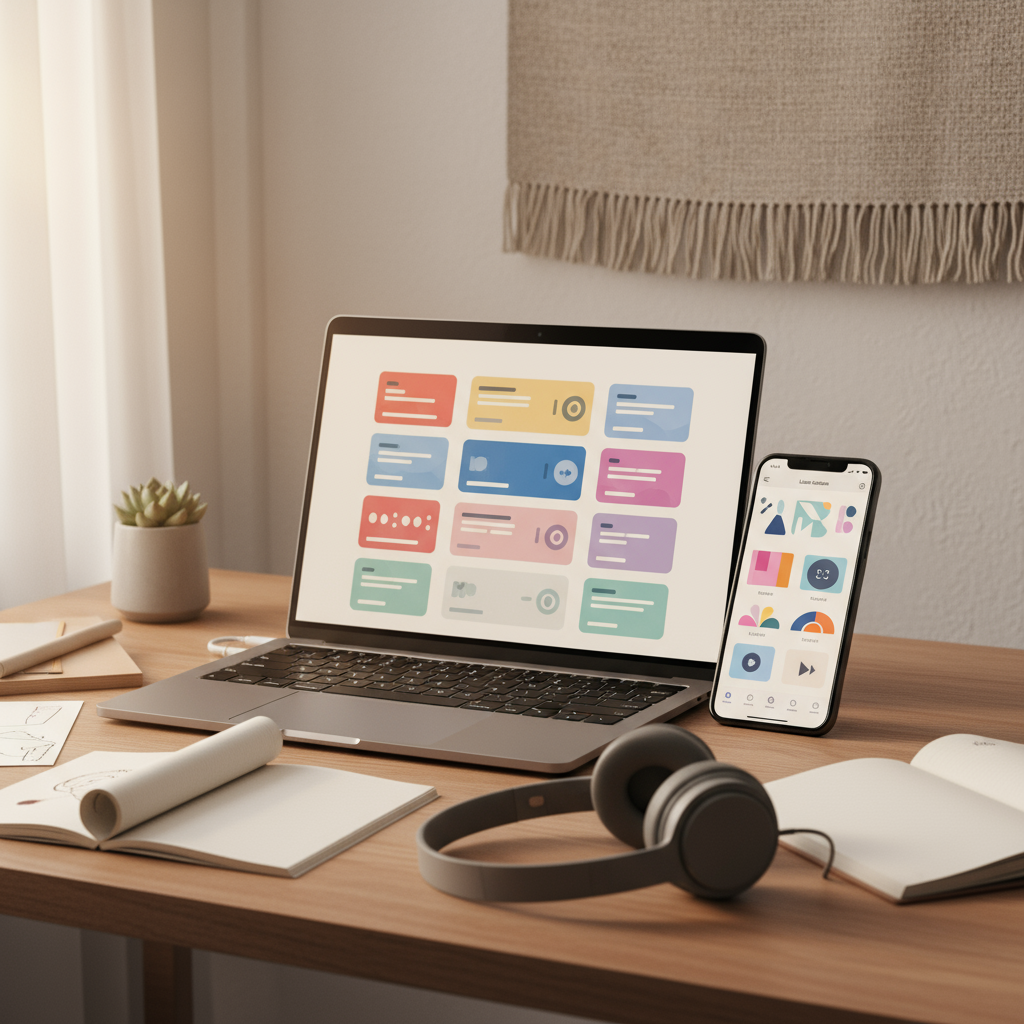
Table of Contents
Introduction
Picture this: you’re chatting with someone from another country, effortlessly switching between languages, and suddenly the whole world feels smaller. More connected. That’s the magic of learning a new language—it’s your passport to new cultures, fresh perspectives, and opportunities you never saw coming. Sure, the journey can feel overwhelming at times. (Who hasn’t stared at a grammar book wondering if they’ll ever get it?) But here’s what I’ve learned: with the right approach and mindset, anyone can make real progress toward fluency.
Learning a language isn’t just about cramming vocabulary words or memorizing verb conjugations. It’s about rewiring your brain to think differently. And the benefits? They go way beyond being able to order coffee in Paris. Studies show that bilingual brains are sharper, more creative, and better at solving problems. You become more empathetic too, seeing the world through different cultural lenses. But let’s be honest—finding time to study between work, family, and everything else life throws at you? That’s where most people struggle. If you’re juggling a packed schedule, mastering time management skills can be a game-changer. It’s about carving out those precious study moments and actually sticking to them.
Then there’s stress—the silent progress killer. You know that feeling when you freeze up trying to speak in your target language? Or when you’re drowning in new grammar rules and nothing makes sense anymore? That stress doesn’t just kill your motivation; it actually makes it harder for your brain to absorb new information. The good news is there are proven stress reduction methods that can help you stay calm and focused. And here’s something most people overlook: sleep. I know, I know—another thing to worry about. But getting quality rest isn’t just nice to have; it’s when your brain actually processes and stores all that new language info. Building healthy sleep habits might be the secret weapon you didn’t know you needed.
Want to dig deeper into what actually works? There are some fantastic resources out there specifically for language learners. Check out these practical tips for learning a new language if you’re looking for strategies that go beyond the typical textbook advice. And if you need extra motivation (we all do sometimes), reading about the benefits of bilingual education will remind you why this journey is so worth it. These resources don’t just give you tips—they help you understand the science behind why certain methods work better than others.
What You’ll Learn in This Guide
Ready to transform how you approach language learning? This guide is your roadmap to faster, more effective progress. We’re going to cover everything from the mental game to the practical stuff that actually moves the needle.
- Setting Clear Goals: Learn why defining specific, measurable objectives boosts your motivation and helps you focus on meaningful milestones in language acquisition.
- Effective Learning Techniques: Discover methods such as immersion, spaced repetition, and interactive tools that enhance retention and make practice engaging.
- Practical Application: Understand how practicing speaking, writing, and listening in real-life contexts solidifies your abilities and prepares you for fluent communication.
- Staying Motivated: Explore helpful tips for overcoming challenges, celebrating progress, and building a supportive learning environment that keeps enthusiasm high.
We’ll also talk about when it might be time to bring in reinforcements—like finding a tutor or enrolling in a course. Sometimes you need that extra push or professional guidance to break through plateaus. Throughout this guide, we’ll circle back to those key foundations like time management skills and language learning tips because they really do make all the difference.
Here’s the thing: when you invest in better language learning strategies, you’re not just improving your vocabulary or pronunciation. You’re developing skills that spill over into every area of your life—better focus, improved memory, stronger problem-solving abilities. Whether you’re starting from “hello” or trying to push past that intermediate plateau, this guide has something for you. Let’s figure out how to make this language learning thing not just doable, but actually enjoyable.
Get ready for strategies that work in the real world, insights backed by actual research (not just theory), and advice from people who’ve been exactly where you are now. In the sections ahead, we’ll break down each phase of learning, giving you practical tools to turn those language goals into your new reality.

Learning a new language? You’re in for quite the ride. It’s not just about memorizing vocabulary or getting grammar rules right—though those matter too. What you’re really signing up for is a chance to see the world differently, think in new ways, and connect with people you never could before. Pretty amazing when you think about it. But here’s the thing: if you want to get past those basic “hello, how are you” conversations, you need a real strategy. We’re talking about two game-changers that can take your language skills from struggling to soaring: smart goal-setting and learning techniques that actually work. Trust me, once you nail these down, everything else starts falling into place. Ready to dive in?
Setting Clear Goals for Effective Language Acquisition
Let’s get real about goals for a second. You know that feeling when you sit down to study and think, “Okay, I want to get better at Spanish”? That’s not a goal—that’s a wish. And wishes don’t get you fluent. Goals do. The difference? Goals are specific, measurable, and give you something concrete to work toward. Think “I want to have a 10-minute conversation with my neighbor about weekend plans” instead of “I want to speak better.” See the difference? Suddenly, you know exactly what you’re aiming for, and more importantly, you’ll know when you’ve hit it. This kind of clarity doesn’t just keep you motivated—it turns what feels like climbing Mount Everest into taking one step at a time. And speaking of staying organized with your time, this approach mirrors the same principles found in time management skills, where planning and prioritization make all the difference.
Here’s what I’ve learned from watching countless language learners (and from my own stumbles along the way): vague goals kill motivation faster than anything else. When you don’t know where you’re going, every small setback feels like a roadblock. But when you’ve got crystal-clear targets? Those same setbacks become minor detours. Maybe you want to pass a certification exam, or read your favorite book in another language, or finally understand what your grandmother’s been saying all these years. Whatever it is, make it personal. Make it specific. The more your goals connect to something you actually care about, the more likely you’ll stick with it when the going gets tough (and it will get tough—that’s just part of the process).
Benefits of Goal Setting in Language Learning
Wondering why goal setting works so well for language learning? Here’s what happens when you get this right:
- Motivation Boost: When you know exactly what you’re working toward, it’s easier to push through those days when conjugating verbs feels impossible. Your brain likes having a target to hit.
- Sustained Engagement: Goals give you checkpoints to celebrate. Finished your first novel in French? That’s worth a victory dance. These wins keep you coming back for more.
- Improved Focus: No more wandering aimlessly through language apps. When you know you need to nail restaurant vocabulary for your trip next month, your study sessions suddenly have purpose.
- Personalized Learning Path: Your goals shape everything—what vocabulary you prioritize, which grammar points matter most, even how you practice. It’s like having a custom roadmap built just for you.
Once you’ve got your goals mapped out, something interesting happens. You start seeing progress everywhere. That moment when you understand a joke in your target language without translating it first? Boom—milestone achieved. Suddenly you’re not just studying a language; you’re actively becoming someone who speaks it. And that shift in mindset? It changes everything. Now let’s talk about the techniques that’ll help you get there faster.
Effective Learning Techniques to Optimize Language Retention
Okay, here’s where the rubber meets the road. You can set all the goals you want, but if your learning methods are stuck in the stone age, you’re going to struggle. The good news? We know a lot more about how the brain actually learns languages than we did even a decade ago. Three techniques stand out as absolute game-changers: immersion, spaced repetition, and interactive tools. Think of them as your language learning power trio. Each one attacks the problem from a different angle, and together they create this perfect storm of progress. It’s similar to the strategies we see in how to beat procrastination—intentional practice and smart repetition help you break through barriers that used to seem impossible.
Immersion sounds fancy, but it’s really just about surrounding yourself with the language as much as possible. Change your phone’s language settings. Watch Netflix with subtitles in your target language (not English). Talk to yourself in the shower—seriously, no one’s listening, and it works. The goal is to train your brain to think in the new language instead of constantly translating back and forth. Meanwhile, spaced repetition is like having a conversation with your memory. Instead of cramming everything at once (we’ve all been there), you review things at exactly the right intervals to make them stick. It’s science, not magic. And interactive tools? They turn studying into something that doesn’t feel like studying. Language exchange apps, games, conversation practice—suddenly you’re playing instead of grinding through exercises.
Key Aspects of Effective Learning Techniques
Want to supercharge your language learning? These four techniques will get you there:
- Immersion: Surround yourself with the language daily through conversations, podcasts, movies—whatever works for your lifestyle. Your brain needs to get comfortable with the sounds and rhythms before fluency clicks.
- Spaced Repetition: Review vocabulary and grammar at strategic intervals. Apps like Anki do this automatically, but the principle is simple: review right before you’re about to forget.
- Interactive Tools: Use apps, games, and language exchange platforms to practice with real people in real situations. Learning should feel social and fun, not like homework.
- Active Practice: Don’t just consume the language—use it. Write journal entries, record voice memos, have conversations (even if they’re terrible at first). Making mistakes is how you improve.

Learning a new language? You’re in for something amazing. It’s not just about memorizing vocabulary or mastering grammar rules—you’re opening doors to entire worlds of culture, connection, and perspective. And here’s what we’ve discovered together: success isn’t about grinding through endless hours. It’s about being smart with your approach.
Think of clear, specific goals as your GPS. Without them, you’re just wandering around hoping to stumble onto fluency. But with them? You can actually see your progress, celebrate wins, and push through those inevitable “I’ll never get this” moments. The techniques you choose matter too—immersion, spaced repetition, interactive tools—these aren’t just fancy methods. They’re what transform your brain from “this is impossible” to “hey, I’m actually getting this.”
But here’s the real secret: you’ve got to use what you learn. Speaking, writing, listening—even when it feels awkward or you mess up. (Trust me, we all mess up.) That’s where the magic happens. Your brain starts connecting the dots naturally, and suddenly you’re not translating in your head anymore.
Now, let’s talk about staying motivated—because let’s be honest, there will be days when you don’t feel like studying. Celebrating small wins helps. So does having people in your corner. And recognizing when you need help? That’s not giving up—that’s being strategic. Sometimes a teacher or tutor can spot exactly what’s holding you back.
Here’s where the practical stuff gets crucial. You need solid time management skills to carve out consistent study time from your busy life. Learning can be stressful too, so check out our guide on stress reduction methods to keep your mind clear and focused. And don’t underestimate sleep—your brain literally processes and stores new language skills while you rest, so developing healthy sleep habits is like giving yourself a learning superpower.
Want to level up your approach? Our insights on effective goal-setting strategies can help you stay motivated and track real progress. And when procrastination creeps in (because it will), we’ve got you covered with our guide on how to beat procrastination.
Look, learning a language is a marathon, not a sprint. Some days you’ll feel like a genius, others like you’ve forgotten everything. That’s completely normal. What matters is showing up consistently, being patient with yourself, and trusting that every awkward conversation and every grammar mistake is actually moving you forward. You’ve got this—one word, one phrase, one breakthrough at a time.
Frequently Asked Questions
-
How long does it take to learn a new language?
- The time varies widely based on language complexity, learning intensity, and individual aptitude. With consistent, targeted practice, many start to communicate comfortably within months, but fluency generally takes years to develop.
-
What is the best way to practice speaking?
- Engaging regularly with native speakers or language partners is the most effective approach. Conversations provide real-time feedback, build confidence, and improve natural usage beyond textbook knowledge.
-
Can I learn a language without immersion?
- Yes, though immersion accelerates learning by surrounding you with the language in everyday contexts. Without it, progress may be slower, but consistent practice with thoughtful techniques still leads to success.
-
Are language learning apps helpful?
- They are valuable supplemental tools for vocabulary, grammar, and listening practice. However, combining apps with practical application and speaking experience is key to truly mastering a language.
